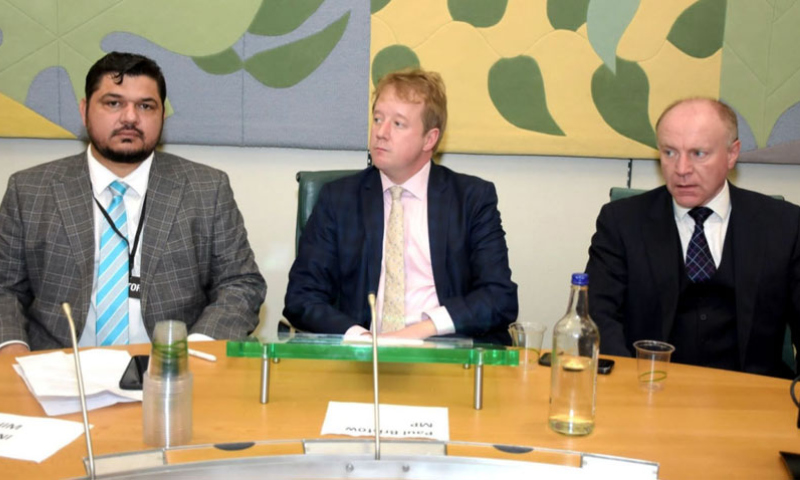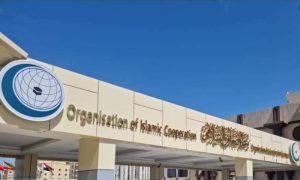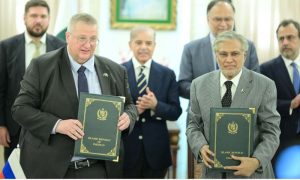LONDON: A gathering of British lawmakers, activists, practitioners, and peace activists convened in the UK Parliament to discuss the ongoing issues in the Indian illegally-occupied Jammu and Kashmir (IIOJK).
The event, marking International Human Rights Day, also addressed the Indian Supreme Court’s recent decision to uphold the Modi government’s revocation of Article 370. The discussions underscored the international community’s responsibility to advocate for a free and fair plebiscite in Jammu and Kashmir.
Chaired by Paul Bristow, MP, and hosted by Fahim Kayani, President of the UK-based Diaspora group Tehreek-e-Kashmir UK, the conference saw the participation of several British lawmakers, including Kate Hollern, Jess Phillips, Sarah Owen, Steve Baker, Sara Britcliffe, Lord Qurban Hussain, Muhammad Yasin, Tahir Ali, Tan Dhesi, Debbie Abrahams, and Marco Longhi. The detailed discussions delved into the complexities of the Kashmir dispute, which has become a nuclear flashpoint in South Asia.
Paul Bristow condemned India’s ongoing illegal actions in Kashmir and called for solidarity from those supporting the human rights of Palestinians to extend the same support to the people of occupied Kashmir. Fahim Kayani commended Paul for his consistent support for Kashmir and emphasized the importance of maintaining the Kashmir issue’s profile within the Conservative party.
The discussions addressed various aspects, with Kate Hollern stressing the significance of human rights and the need to urge the UK government to uphold those rights in Indian Occupied Kashmir. Tahir Ali dismissed the Indian Supreme Court’s ruling, stating that it had no right to change the disputed nature of Indian Occupied Kashmir.
Debbie Abrahams expressed profound disappointment in the Supreme Court’s decision, considering it undemocratic and breaching various UN resolutions. The participants recognized the decades-long injustices faced by the people of Indian Occupied Kashmir, emphasizing the need for a resolution based on international law.
The conference also hosted a resolution on Kashmir, dubbing the Indian Supreme Court’s decision as an “open contravention” of UN resolutions. The resolution expressed concern over the heightened surveillance, raids, arbitrary arrests, and extra-judicial kidnappings enforced by the Indian military regime in Kashmir. It called out the issuance of domicile certificates to non-Kashmiris, warning against the artificial change in the region’s demography.
The participants urged the release of Kashmiri resistance leaders and called for respect for international law and the UN Charter. They emphasized that these principles were crucial to pressuring India to allow Kashmiris to decide their political fate through a fair and free plebiscite, as promised by the international community since 1948.
























